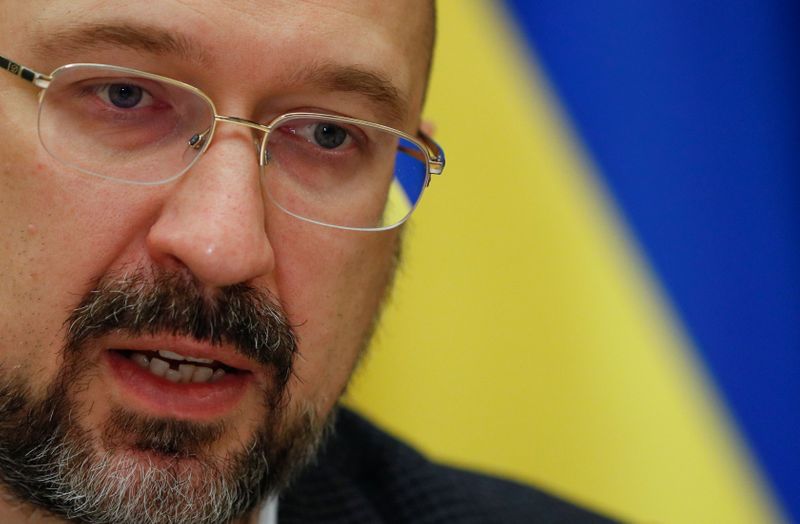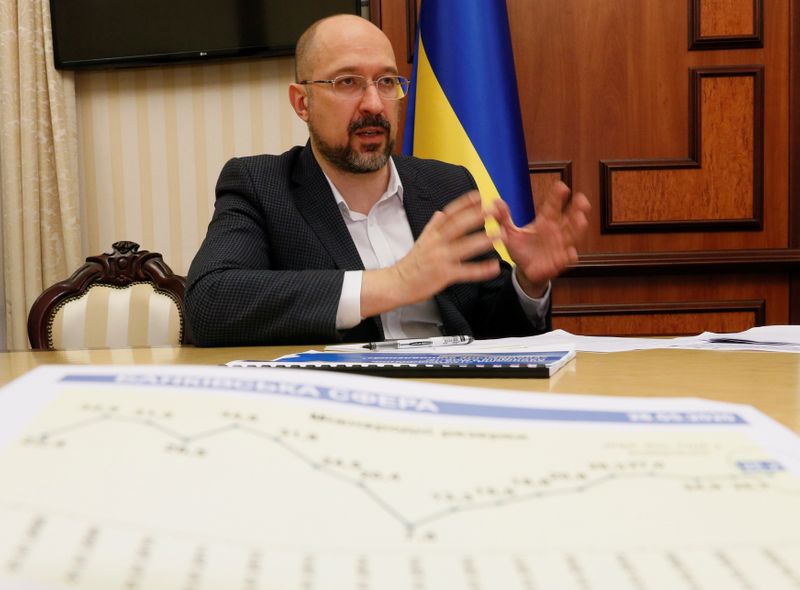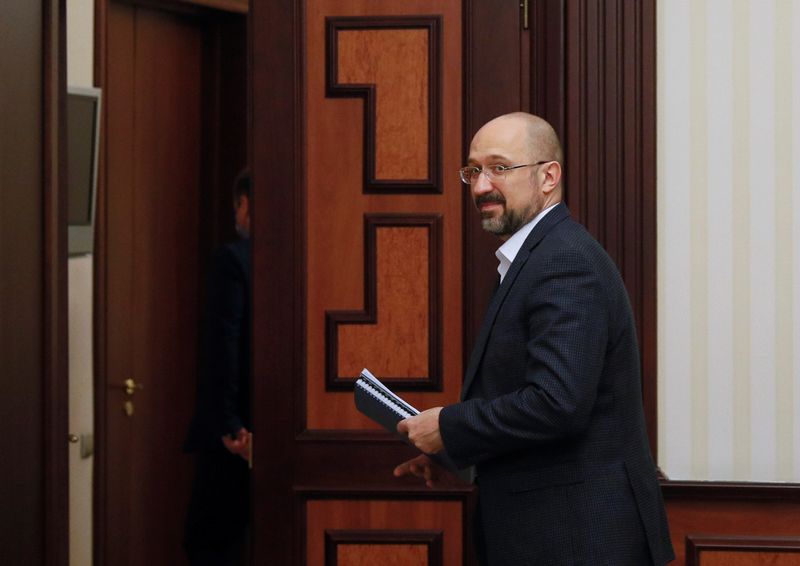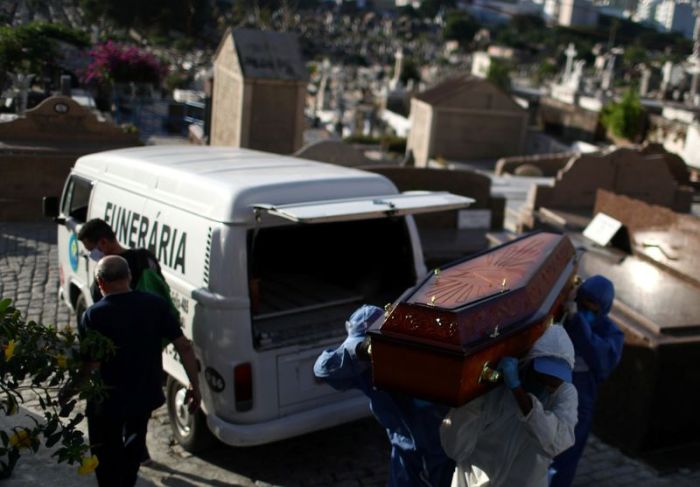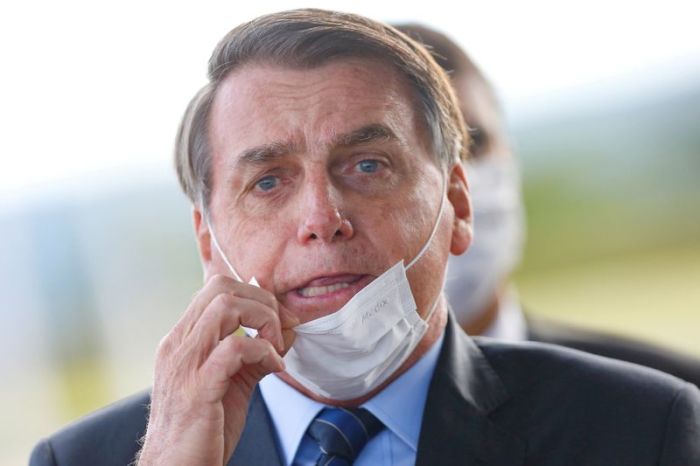KIEV (Reuters) – Ukraine is expecting the International Monetary Fund (IMF) to approve a $5 billion loan package on June 5 and to disburse the first tranche of $1.9 billion the next day, Prime Minister Denys Shmygal told Reuters on Friday.
President Volodymyr Zelenskiy has said Ukraine risked defaulting without the money, which Shmygal said he expected to be approved at an IMF board meeting. Kiev struggled for months to pass the reforms the fund was asking for amid concerns over corruption and influence-peddling.
The country’s precarious financial position and horse-trading over reform comes at a time when Zelenskiy is trying to negotiate with Russia, which annexed Ukraine’s Crimea region in 2014 and backed a pro-Russian uprising in eastern Ukraine.
The IMF declined to comment on Shmygal’s statement. His remarks offered the most precise timing the government has yet given for when it expects the disbursement of the IMF loan tranches, money the government sorely needs to weather an economic shock caused by the coronavirus pandemic.
“Today, together with the president, we will have a phone call with Mrs Kristalina [Georgieva], the head of the IMF. The board meeting will be held on June 5, and probably on June 6 Ukrainian time we expect to receive the tranche,” he said.
The second tranche, worth $1.6 billion, is expected from September onwards and the third tranche, of $1.5 billion, would come next year, Shmygal said. Ukraine additionally expects to receive 600 million euros from the European Union shortly after the first IMF tranche.
SHARP ECONOMIC DECLINE
Shmygal also disclosed a preliminary estimate for economic growth in the second quarter of this year, saying gross domestic product could fall by 12%.
The government has previously said the economy would shrink by nearly 5% for the full year.
The government expects the second quarter to be the worst affected, and Shmygal said Ukraine could bounce back to growth of 3.6-4% next year.
Ukraine moved quickly to impose lockdown measures in March to contain the coronavirus pandemic. It has recorded fewer cases than much of western Europe, but many businesses were either closed or restricted.
The prime minister also said that the government would not restrict wheat exports for the next two months, even though the quota the government previously agreed with traders has been exhausted.
Ukraine is one of the world’s top grain exporters and had previously signalled it might not allow exports beyond the quota. But Shmygal said the additional overseas sales were a vital source of foreign exchange and a way to support farmers.
The sharp economic downturn caused by the pandemic had also focused attention on Ukraine’s ability to service its debts this year.
Shmygal said the government had repaid a $1 billion Eurobond this week, which he said “shows that we can and are able to service external and internal debt absolutely calmly.”
“The support of our creditor partners is necessary for Ukraine for economic development,” he said.
Ukraine was able to repay the money without dipping into central bank reserves, which stand at $26.2 billion, he said.
While Ukraine continues to borrow on the domestic market, “today, in the current situation, there is no urgent need to go to foreign markets and borrow there, firstly because the situation is unfavourable.”
(Editing by Andrew Osborn and Frances Kerry)

